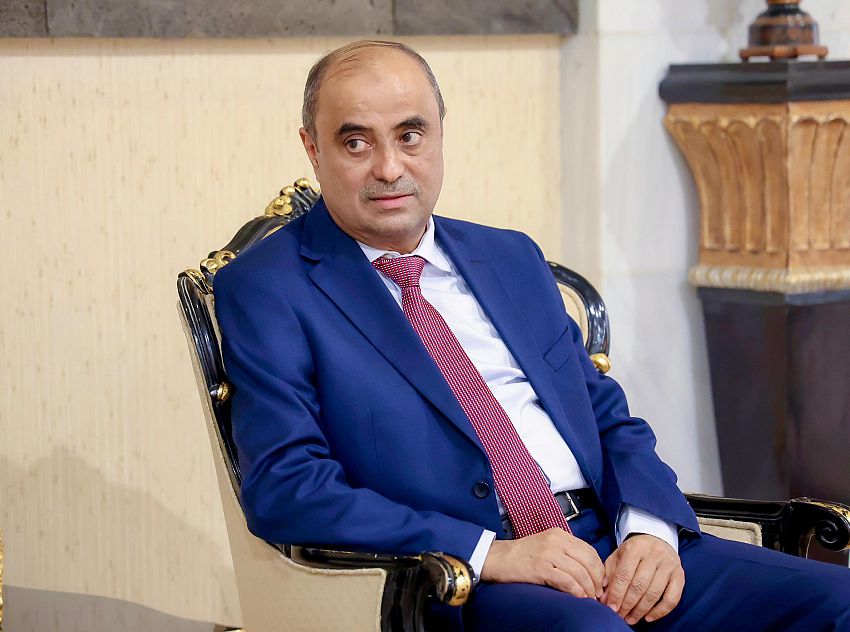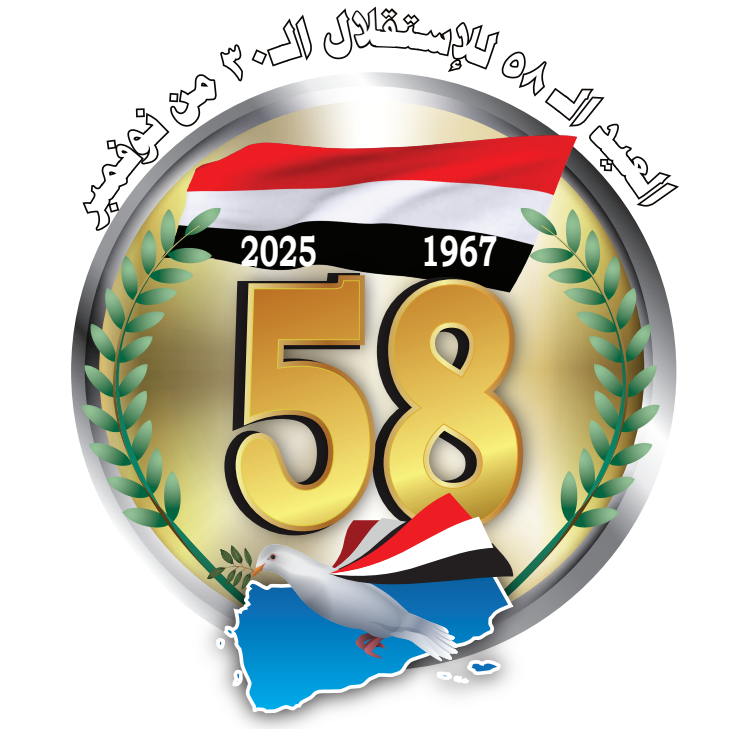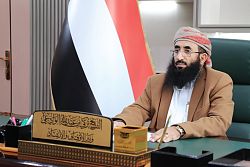
Endowments Minister Calls for National Unity Behind Presidential Leadership Council to Strengthen Security and Stability
The Minister of Endowments and Guidance, Sheikh Turki Al-Wadi'i, has appealed for bolstering national cohesion and rallying behind the legitimate government, represented by the Presidential Leadership Council headed by President Dr. Rashad Mohammed Al-Alimi, in a way that contributes to reinforcing security, stability, and safeguarding state institutions.
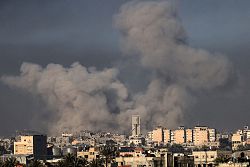
Casualty Toll from Israeli Offensive on Gaza Rises to 72,070 Martyrs, 171,738 Injured
The casualty toll from the Israeli occupation’s offensive on the Gaza Strip since October 7, 2023, has risen to 72,070 martyrs and 171,738 injured, according to the Ministry of Health in Gaza.
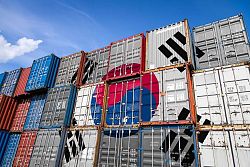
Korea large companies' exports rise 10 percent
Large companies' exports in South Korea rose approximately 10 percent year-on-year in the fourth quarter of last year, driven by increased global demand for semiconductors.
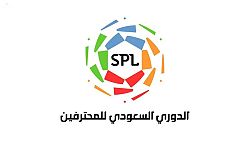
Saudi League: Al-Nassr, Al-Ettifaq and Neom Secure Victories Over Al-Ittihad, Damac and Al-Riyadh
Al-Nassr defeated its guest Al-Ittihad 2–0 in the match that brought them together at Al-Awwal Park Stadium in Riyadh, as part of the 21st round of the Saudi Professional League.
Last Update: ،
2026/02/22
Time
01:07:26
Latest News:
 Endowments Minister Calls for National Unity Behind Presidential Leadership Council to Strengthen Security ..
Endowments Minister Calls for National Unity Behind Presidential Leadership Council to Strengthen Security ..
 Yemen’s Ambassador Discusses Strengthening Development Cooperation with Austrian Development Agency
Yemen’s Ambassador Discusses Strengthening Development Cooperation with Austrian Development Agency
 Yemeni Leadership Condemns Attempts to Disrupt State Institutions and Vows to Maintain Order
Yemeni Leadership Condemns Attempts to Disrupt State Institutions and Vows to Maintain Order
 Stability of Aden cornerstone for eliminating the coup—Lieutenant General al-Subaihi stressed
Stability of Aden cornerstone for eliminating the coup—Lieutenant General al-Subaihi stressed
 Government Holds its First Meeting
Government Holds its First Meeting
Latest News:
 Endowments Minister Calls for National Unity Behind Presidential Leadership Council to Strengthen Security ..
Endowments Minister Calls for National Unity Behind Presidential Leadership Council to Strengthen Security ..
 Yemen’s Ambassador Discusses Strengthening Development Cooperation with Austrian Development Agency
Yemen’s Ambassador Discusses Strengthening Development Cooperation with Austrian Development Agency
 Yemeni Leadership Condemns Attempts to Disrupt State Institutions and Vows to Maintain Order
Yemeni Leadership Condemns Attempts to Disrupt State Institutions and Vows to Maintain Order
 Stability of Aden cornerstone for eliminating the coup—Lieutenant General al-Subaihi stressed
Stability of Aden cornerstone for eliminating the coup—Lieutenant General al-Subaihi stressed
 Government Holds its First Meeting
Government Holds its First Meeting
PM: Peace strategic choice for government, but there is no reliable partner
[28/09/2025 01:38]
ADEN-SABA
The Prime Minister Salem bin Braik stated that the recent improvement in the exchange rate of the national currency was not a coincidence, but rather the result of the integration of financial and monetary policies adopted by the government in coordination with the Central Bank of Yemen (CBY).
In an interview with the newspaper 'Asharq al-Awsat' published in its issue today, Sunday, he explained that the currency does not improve through slogans, but through difficult decisions and fiscal discipline.
He said "We have succeeded in curbing speculation, regulating the market, efficiently managing limited resources and imposing transparent mechanisms for financing imports."
He went on saying "among the measures taken by the government are the formation of the National Committee for Regulating and Financing Imports, the prohibition of dealing in foreign currencies in the domestic market, rationalizing public spending and enhancing revenues, activating monitoring and transparency tools".
Bin Braik explained that these measures have led to a significant decline in demand for foreign currency and reduced the gaps that were causing the rial to sharply depreciate, stressing that what happened proves that institutional reforms can make a difference even in the absence of primary revenues, referring to the halt in crude oil exports, which represent 65 percent of public revenues.
The Prime Minister underscored the importance of giving the government an opportunity to work with full powers away from obstacles, underlining the importance of the partners' support to strengthen the position of the national currency.
He made it clear that this improvement needs additional structural measures to ensure its sustainability, calling for courageous decisions that match the nature of the challenges.
The status quo is a difficult stage requires the government to fight a parallel battle alongside the battle to restore the state, Bin Braik stressed.
He noted that the most prominent national challenges include the enormous pressure on basic services, weak revenues due to the halt of oil exports, the complexities of managing local resources and the increasingly growing humanitarian needs.
The Prime Minister warned that the Houthi militias are waging a systematic economic war, using the economy as a weapon to weaken the state and exacerbate the humanitarian crisis.
He made it clear that "The situation in Yemen is no longer merely a national crisis but rather it has become part of the international security equation from the Red Sea to global shipping routes".
Regarding the peace process, Bin Braik stressed that peace is a strategic choice for the Yemeni government, but the problem is that there is no serious and responsible partner.
He blamed Houthi militias for blocking peace efforts and proposal throughout the past years.
The Houthis have repeatedly proved that they have never sought to end the conflict and make peace. The international community is very familiar with this, he stated.
Bin Braik blamed the Iranian regime for prolonging the conflict saying the continued flow of weapons and advanced equipment from Tehran to the militias, as revealed by repeated seizures, is a solid evidence that the Houthis and their sponsors have no genuine intention for peace.
The Prime Minister outlined the features of the desired peace through the restoration of the legal system, the extension of state authority over all its territories, adherence to the constitution and national principles and the implementation of the three references, namely the UN Security Council Resolution No. 2216.
The Prime Minister Salem bin Braik stated that the recent improvement in the exchange rate of the national currency was not a coincidence, but rather the result of the integration of financial and monetary policies adopted by the government in coordination with the Central Bank of Yemen (CBY).
In an interview with the newspaper 'Asharq al-Awsat' published in its issue today, Sunday, he explained that the currency does not improve through slogans, but through difficult decisions and fiscal discipline.
He said "We have succeeded in curbing speculation, regulating the market, efficiently managing limited resources and imposing transparent mechanisms for financing imports."
He went on saying "among the measures taken by the government are the formation of the National Committee for Regulating and Financing Imports, the prohibition of dealing in foreign currencies in the domestic market, rationalizing public spending and enhancing revenues, activating monitoring and transparency tools".
Bin Braik explained that these measures have led to a significant decline in demand for foreign currency and reduced the gaps that were causing the rial to sharply depreciate, stressing that what happened proves that institutional reforms can make a difference even in the absence of primary revenues, referring to the halt in crude oil exports, which represent 65 percent of public revenues.
The Prime Minister underscored the importance of giving the government an opportunity to work with full powers away from obstacles, underlining the importance of the partners' support to strengthen the position of the national currency.
He made it clear that this improvement needs additional structural measures to ensure its sustainability, calling for courageous decisions that match the nature of the challenges.
The status quo is a difficult stage requires the government to fight a parallel battle alongside the battle to restore the state, Bin Braik stressed.
He noted that the most prominent national challenges include the enormous pressure on basic services, weak revenues due to the halt of oil exports, the complexities of managing local resources and the increasingly growing humanitarian needs.
The Prime Minister warned that the Houthi militias are waging a systematic economic war, using the economy as a weapon to weaken the state and exacerbate the humanitarian crisis.
He made it clear that "The situation in Yemen is no longer merely a national crisis but rather it has become part of the international security equation from the Red Sea to global shipping routes".
Regarding the peace process, Bin Braik stressed that peace is a strategic choice for the Yemeni government, but the problem is that there is no serious and responsible partner.
He blamed Houthi militias for blocking peace efforts and proposal throughout the past years.
The Houthis have repeatedly proved that they have never sought to end the conflict and make peace. The international community is very familiar with this, he stated.
Bin Braik blamed the Iranian regime for prolonging the conflict saying the continued flow of weapons and advanced equipment from Tehran to the militias, as revealed by repeated seizures, is a solid evidence that the Houthis and their sponsors have no genuine intention for peace.
The Prime Minister outlined the features of the desired peace through the restoration of the legal system, the extension of state authority over all its territories, adherence to the constitution and national principles and the implementation of the three references, namely the UN Security Council Resolution No. 2216.
Key words:
implementation - sustainability - institutional - rationalizing - Regarding - international - transparency - coordination - humanitarian - increasingly - Al-Wadiah Port Security foils attempt to smuggle thousands of Captagon pills
Al-Wadiah Port Security foils attempt to smuggle thousands of Captagon pills Yemeni Leadership Condemns Attempts to Disrupt State Institutions and Vows to Maintain Order
Yemeni Leadership Condemns Attempts to Disrupt State Institutions and Vows to Maintain Order Government Holds its First Meeting
Government Holds its First Meeting  Yemeni Ambassador Explores Ways to Boost Cultural Cooperation with Indonesian Minister
Yemeni Ambassador Explores Ways to Boost Cultural Cooperation with Indonesian Minister President al-Alimi: Restoring Sana’a and a Just, United Yemen Will Remain a Unifying National Goal
President al-Alimi: Restoring Sana’a and a Just, United Yemen Will Remain a Unifying National Goal Yemen’s Ambassador Participates in Board Meeting of Arab World Institute in Paris
Yemen’s Ambassador Participates in Board Meeting of Arab World Institute in Paris Chairman of the Presidential Leadership Council Exchanges Ramadan Greetings with Arab and Islamic Leaders
Chairman of the Presidential Leadership Council Exchanges Ramadan Greetings with Arab and Islamic Leaders Ministry of Endowments Announces Wednesday as First Day of Ramadan
Ministry of Endowments Announces Wednesday as First Day of Ramadan Public Works Minister, UNOPS Review Cooperation on Road Maintenance Projects
Public Works Minister, UNOPS Review Cooperation on Road Maintenance Projects Al-Arada calls on international community to support Yemeni government, people
Al-Arada calls on international community to support Yemeni government, people